Rules and Skills
post by Andrew Bindon (andrew-bindon) · 2019-04-05T10:50:49.735Z · LW · GW · 2 commentsContents
How do humans acquire skills? Elaboration of Coaching Elaboration of being embedded in the world The world we each get to live in is a function of the skills we have. No finite set of rules is able to capture the performance of a skill tacit-knowledge = know-how = transparent-skills How does understanding ourselves as skilful agents (always already embedded in the world and already taking action in the world) defeat Epistemological Skepticism and Anti-realism ? Summary None 2 comments
The extraordinary moment in 20th Century Philosophy when Ludwig Wittgenstein’s analysis of how people are able to follow rules lines up with Martin Heidegger’s exposition of skillfully dealing with the world we are embedded in.
… Thereby dismantling Epistemological Scepticism and Anti-realism in a single and simple insight.
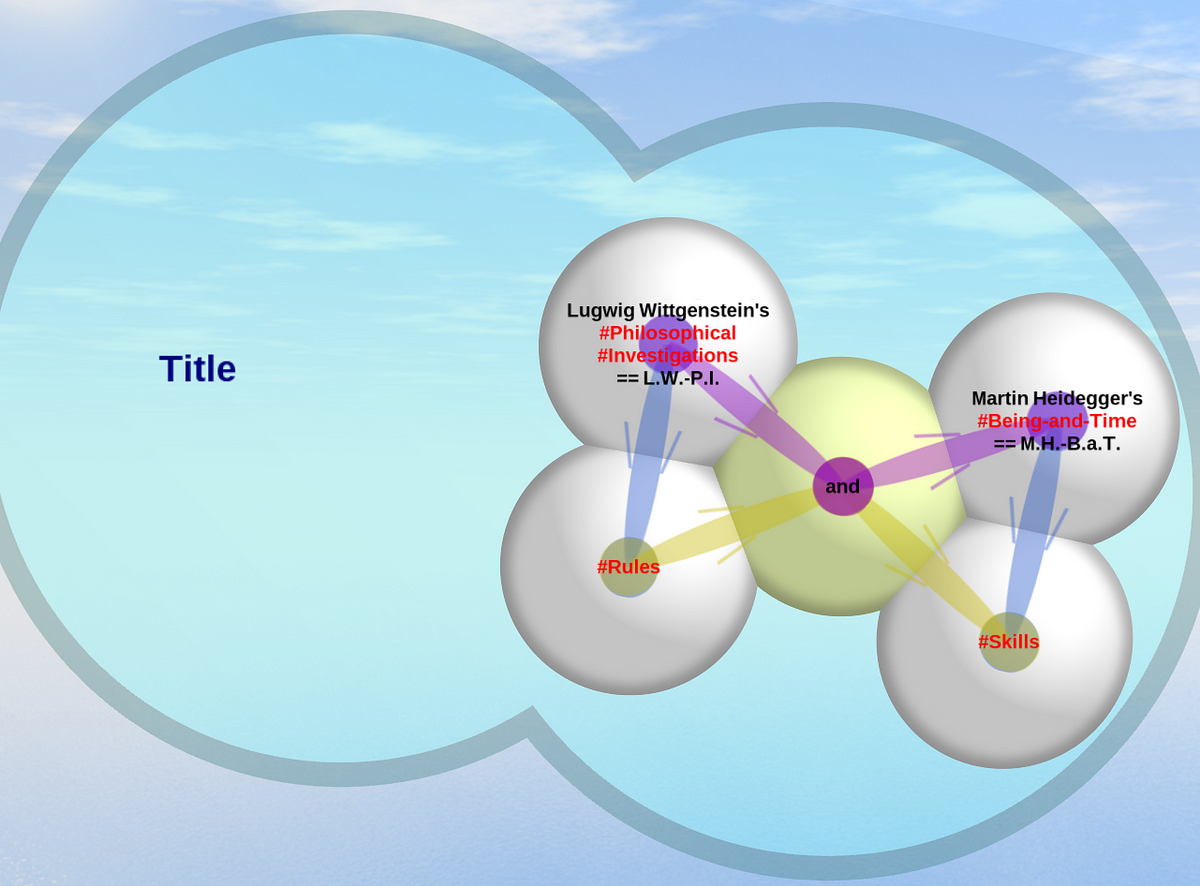
There’s a lot going on in Ludwig Wittgenstein’s Philosophical Investigations and in Martin Heidegger’s Being and Time.
But a single and simple related move made by both Ludwig Wittgenstein and Martin Heidegger is enough to dismantle both … Epistemological Skepticism and Anti-realism…
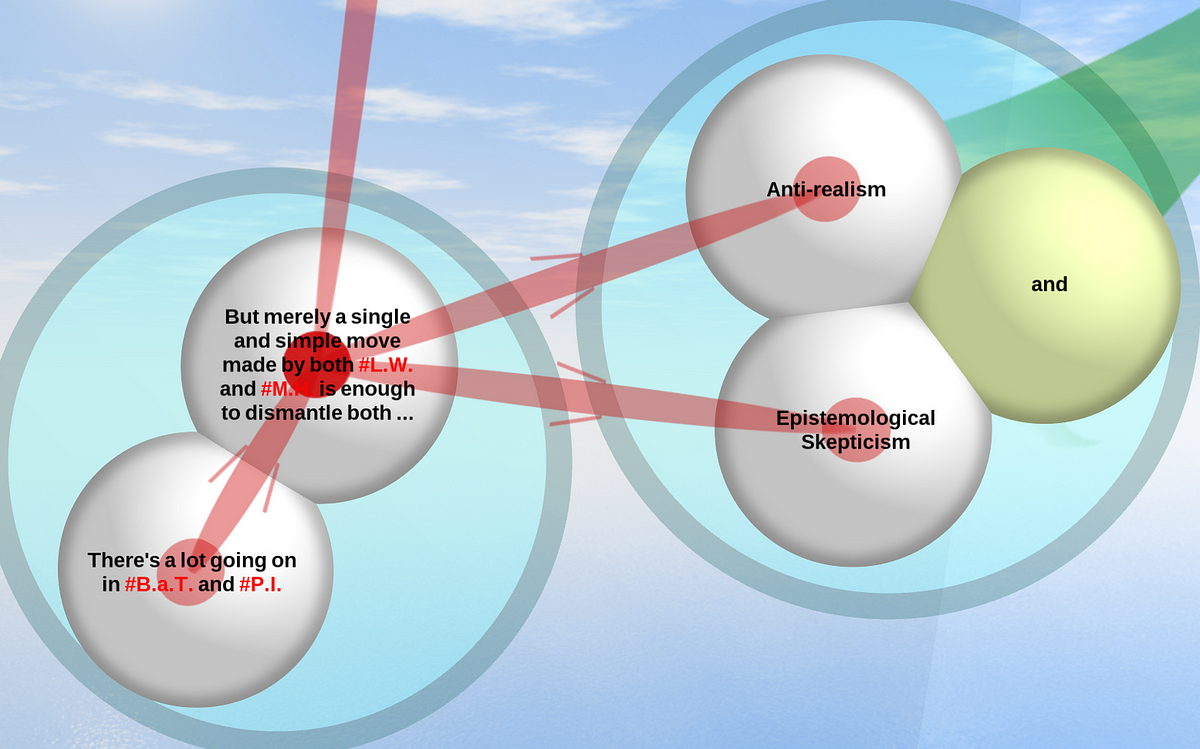
These two master-works converge around the analysis of following a rule (L.W.) and skillfully dealing with the world we are embedded in (M.H.)
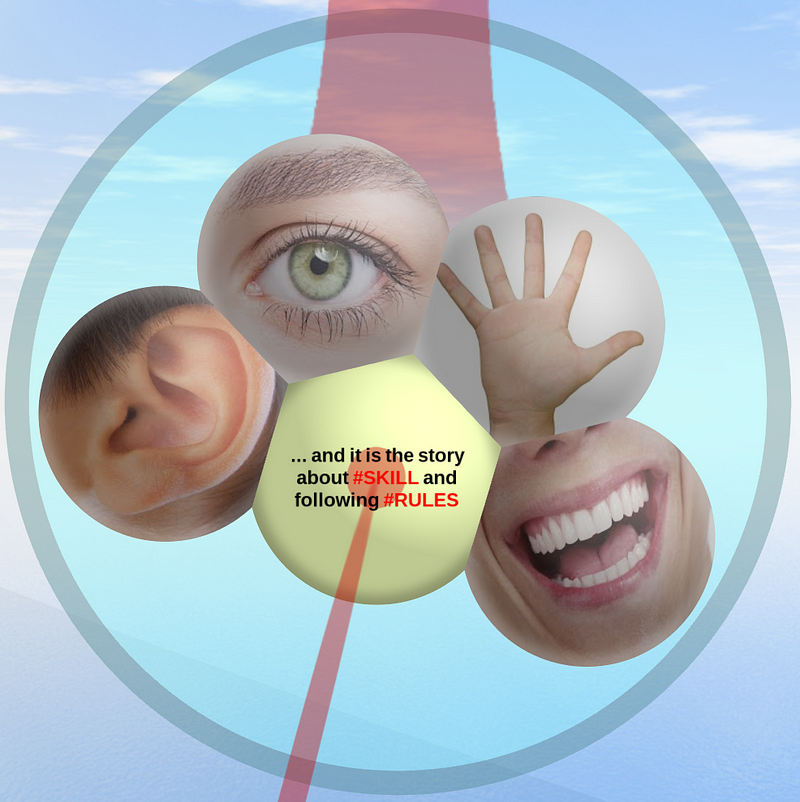
How do humans acquire skills?
- By playing, experimenting, trial-and-error, trying things out
- By practicing
- By imitating
- By being coached, instructed, trained
- By being embedded in the world … we literally cannot help ourselves from acquiring skills, just as a consequence of the continuous feedback that the world gives us all the time, moment by moment, as we live our lives !
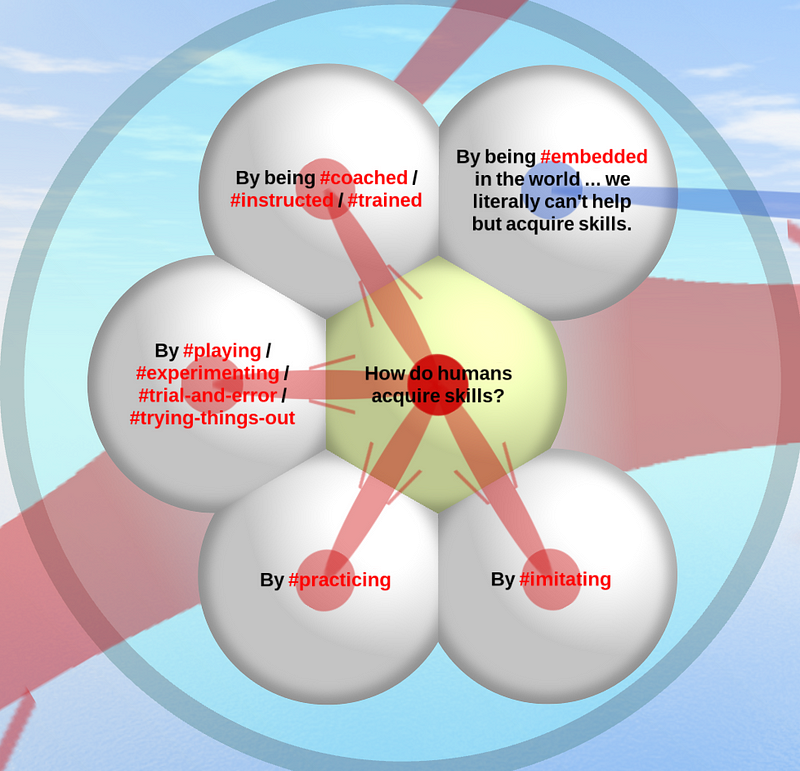
Elaboration of Coaching
The coach breaks skills down into sub-skills and trains the apprentice in each of the sub-skills , and then trains the apprentice to combine the sub-skills
(1) The coach says: Do-X … the apprentice tries to do X.
(2) The coach tells the apprentice whether they did X, or how well or badly they did X
(3) repeat
Notice that the apprentice does not know whether they are doing X or not, or doing it correctly, or doing it well or doing it badly — apart from the say-so of the coach.
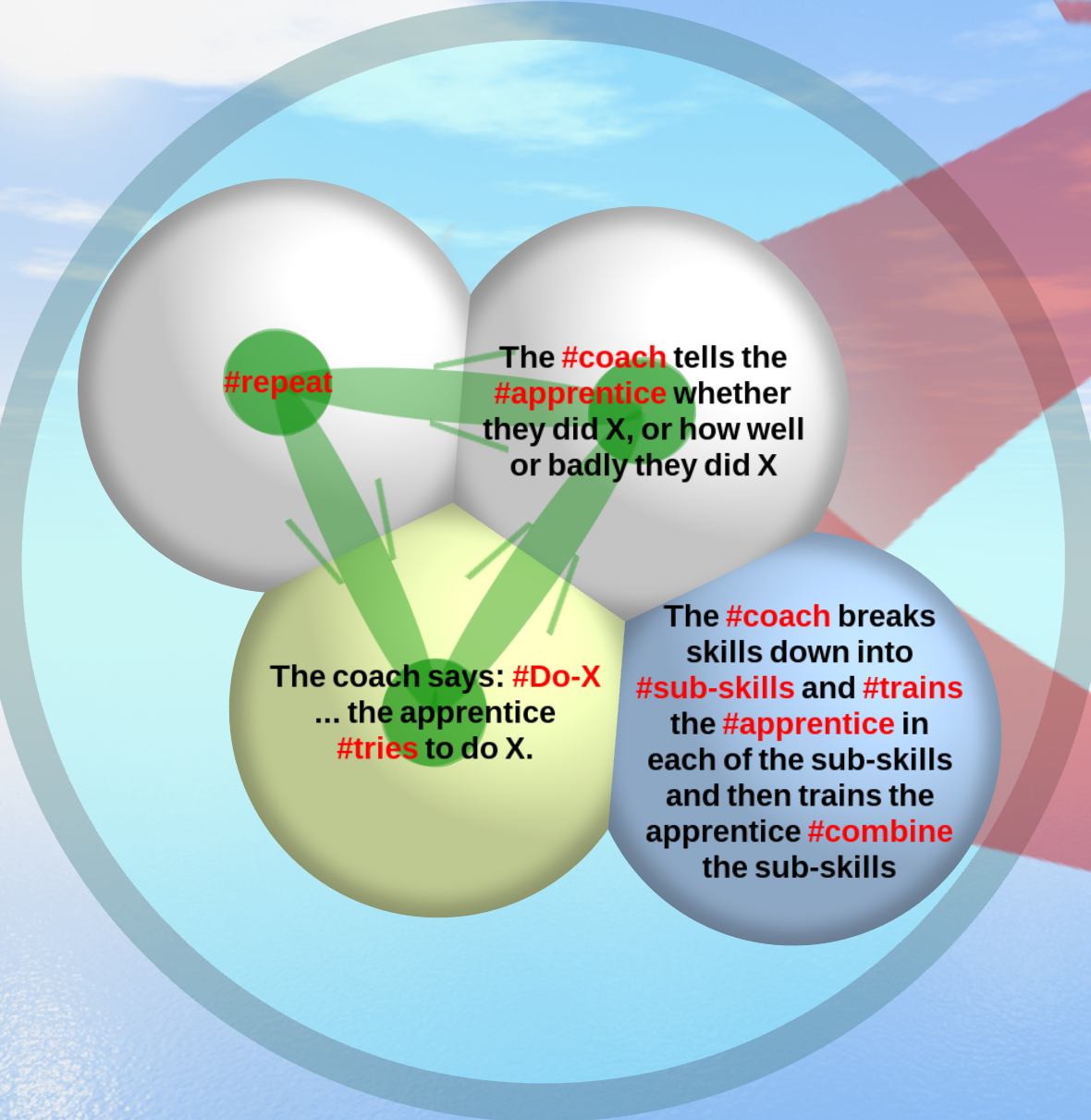
Elaboration of being embedded in the world
We are coupled with the world … the world gives us continuous feedback in respect of the consequences and outcomes of our actions.
At one time you couldn’t do it … now you have to really concentrate or pay attention to not do it !
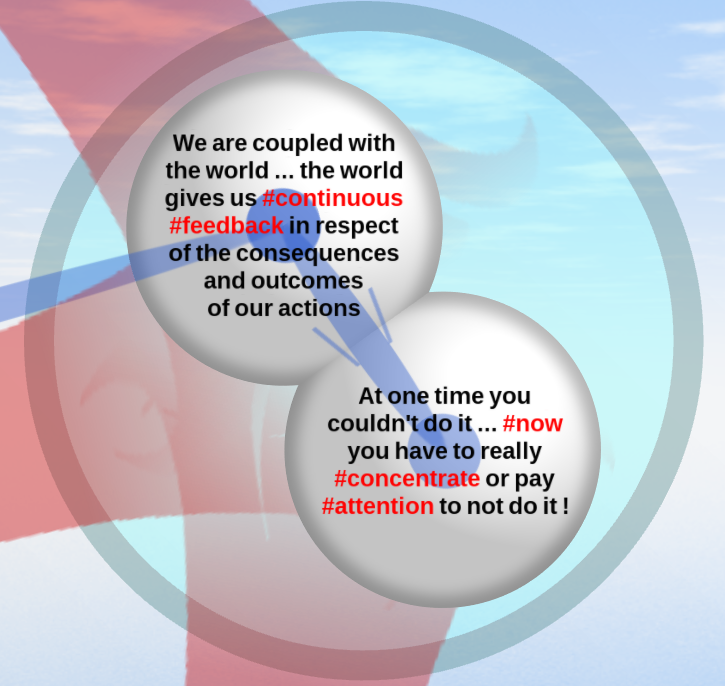
As far as human beings are concerned, the world is not usually composed of objects ( substances ) at all … its composed of TOOLS
( and other-people — which is a whole other conversation )
Tools become transparent as we become familiar with them and how to use them ie. as we become more skilful.
Think of the clutch pedal on a manual-geared car or the door handle you used to enter the room you’re sat in. Tools withdraw from our conscious awareness as we become familiar and competent with their use. Tools and skill withdraw from our conscious awareness and become part of the tacit-knowledge taken-for-granted background against which is becomes possible to follow a rule or an instruction.
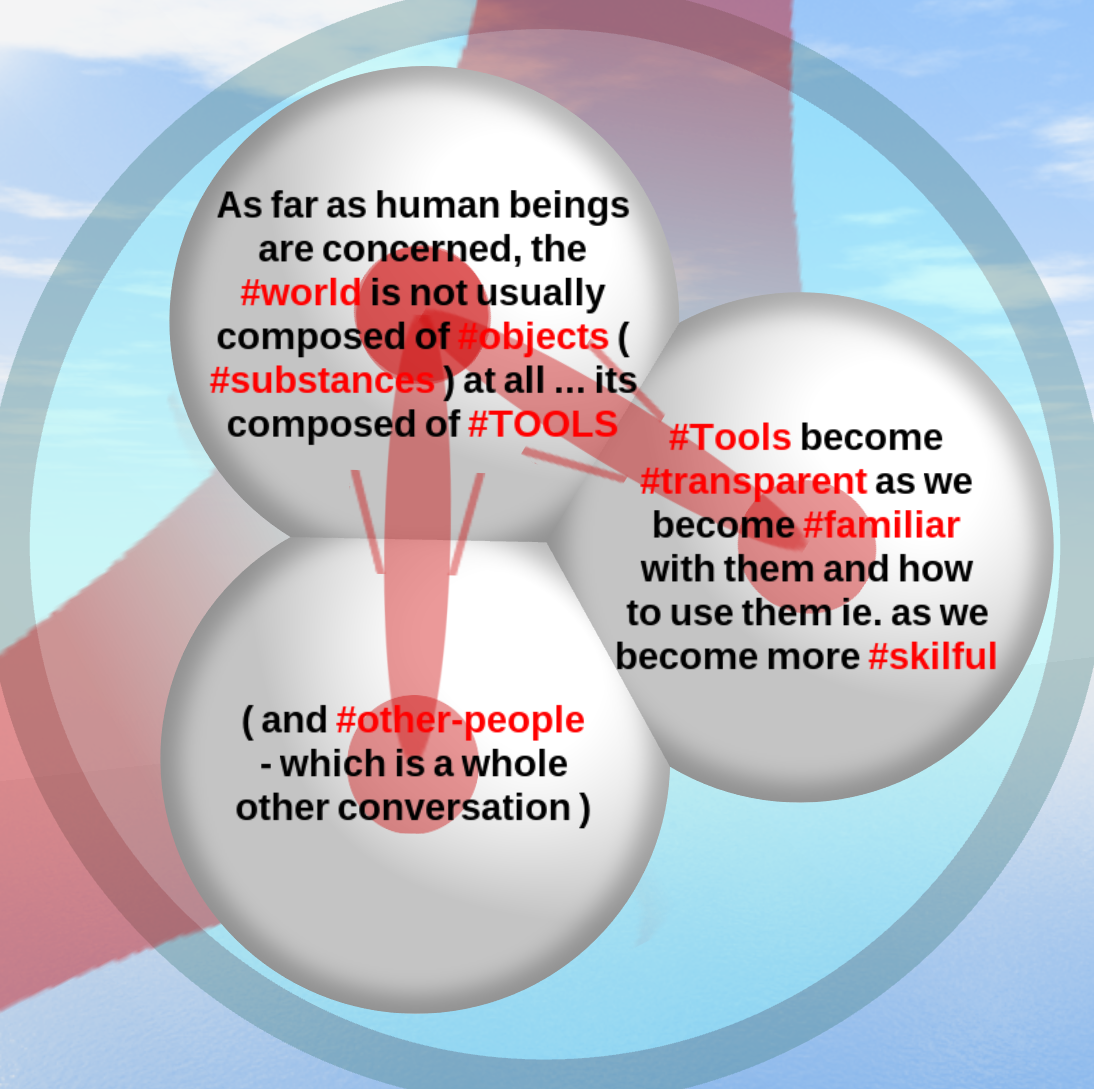
The world we each get to live in is a function of the skills we have.
The primary connection between the humans and the world is not via perception or via cognition or even some combination thereof … it is via SKILL.
To be clearer, it is a mistake to speak of a connection between humans and the world, because humans arise first always already in the world and as that world.
Skills (like tools) are transparent.
We are typically not able to say what rules we are following when skilfully dealing with the world in a particular way.
When learning a new skill we try to apply rules , but rules only take us so far.
We are in any case not able to capture the entirety of a skill in a finite set of rules. How to specify how and when a given rule is to be applied requires another rule which leads to an infinite regress of rules that are required to explicate the application of other rules.
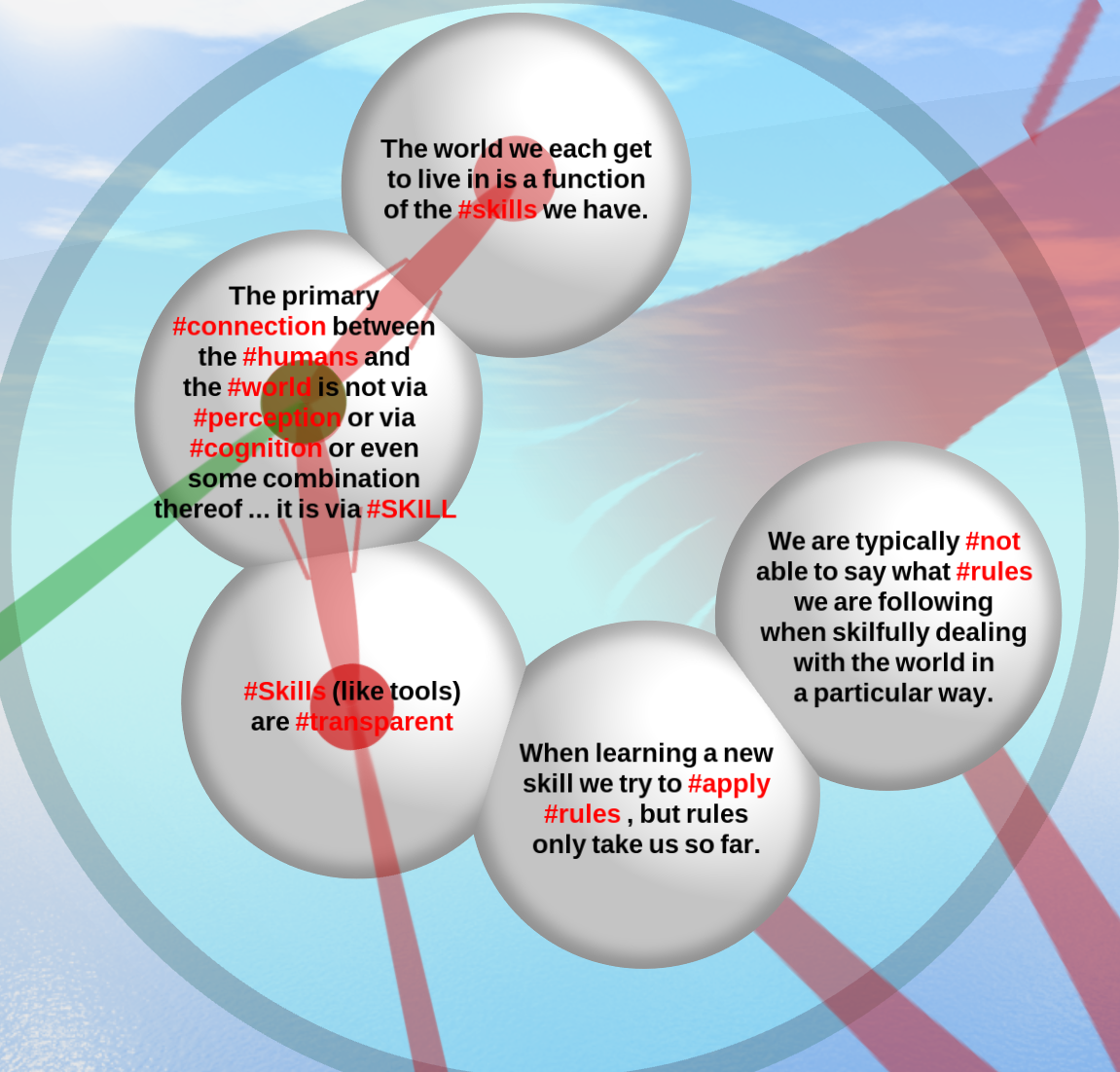
No finite set of rules is able to capture the performance of a skill
Ludwig Wittgenstein points out in Philosophical Investigations that it is not possible to specify a finite set of rules for how to follow a rule, because it leads to an infinite regress. [P.I. Sections 81-88]
How do we know how to apply a rule ?
It can’t be by means of the “rule-applying rule”, because then it can just be asked how we know how to apply that rule (ie. how to apply the rule-applying rule).
How then is it possible to follow a rule ?
The answer is simple. We are able to apply rules because we have acquired the necessary skills to be able to do so.
Consideration of this makes it apparent that we operate on the basis of a whole load of tacit-knowledge ie. know-how that we bring when we apply a rule — know-how that we don’t even need to think about; know-how that we possibly may not even have words for or conceptual understanding of.
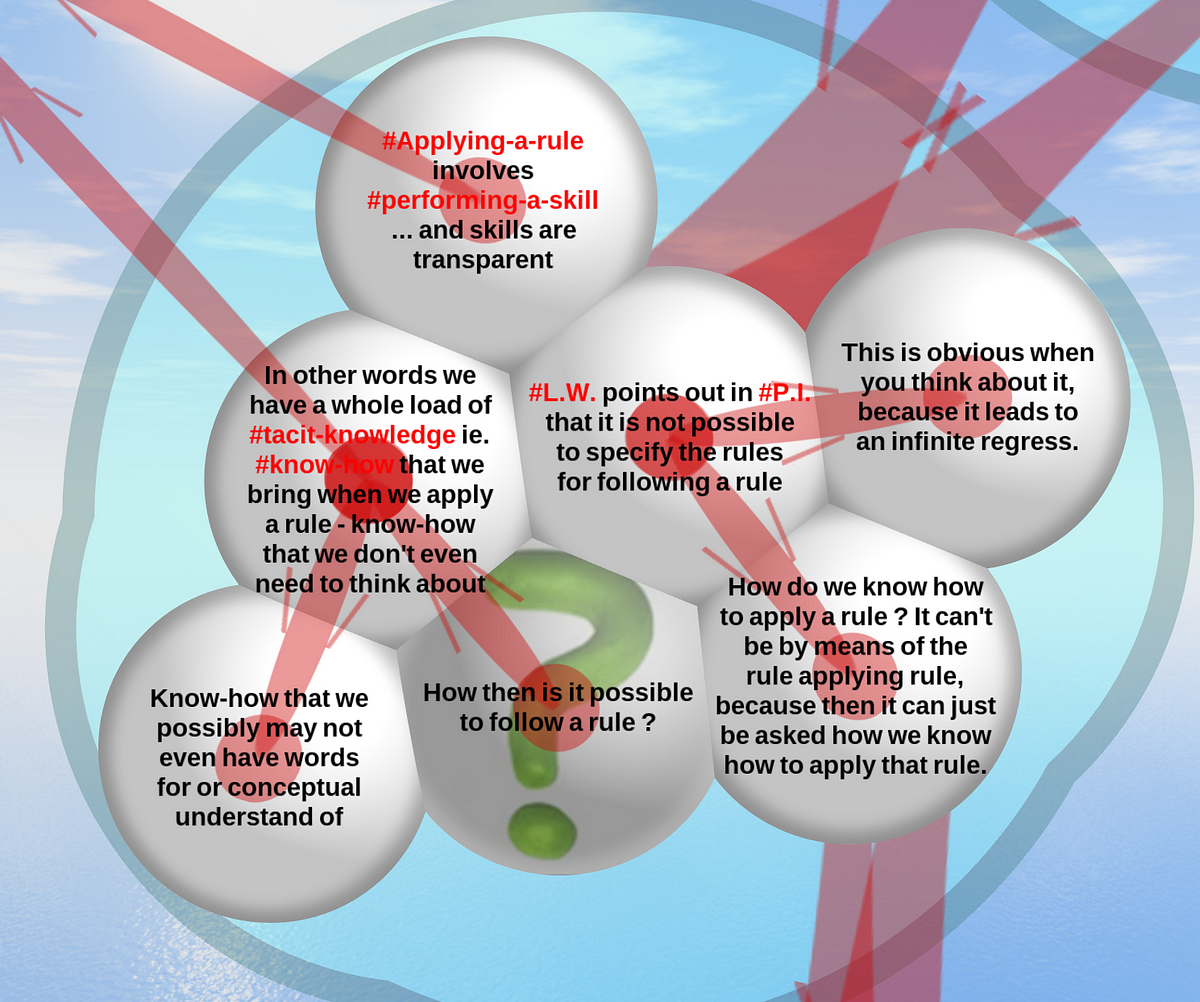
tacit-knowledge = know-how = transparent-skills
Performative knowledge i.e. know-how involves time — activity happens (can only happen) in time and space. Performative knowledge is a function of our embeddedness.
Contrast know-how with know-that.
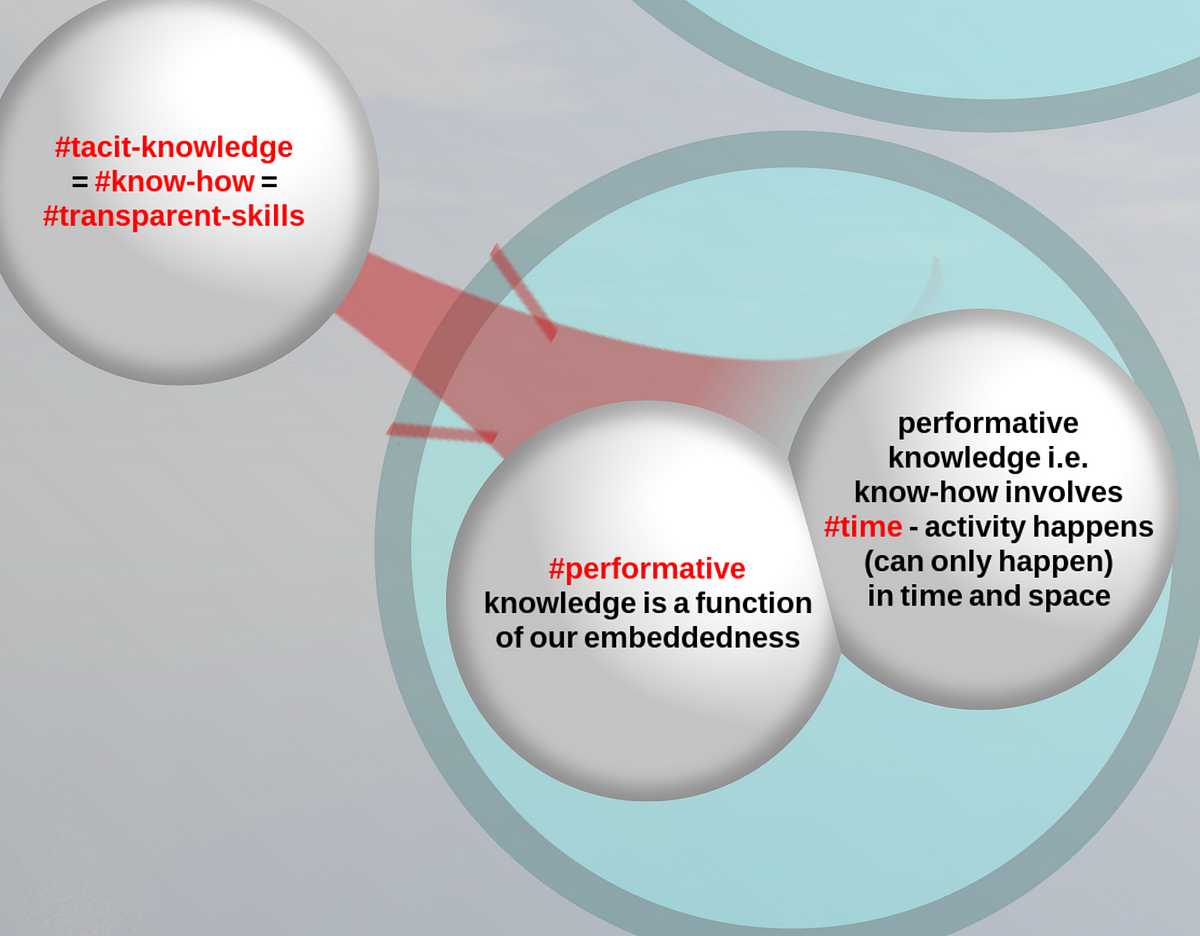
Ludwig Wittgenstein's approach in Philosophical Investigations is to ask awkward questions.
Martin Heidegger's Being and Time approach is to assert the primacy of the experience and behaviour.
These two approaches come together in this extraordinary moment in philosophy where the ungroundness of following rules is balanced by our embeddedness as skillful agents.
We are indeed grounded in the world in the only way we could be grounded — by being embedded in the world that we operate within.
The world gives us continuous moment-by-moment feedback in respect of every action we ever took. It is because we are embedded in the world (coupled with the world), and that things matter to us, that the continuous feedback provided by the world enables us to develop the tacit transparent skills we need to operate adequately in the world.
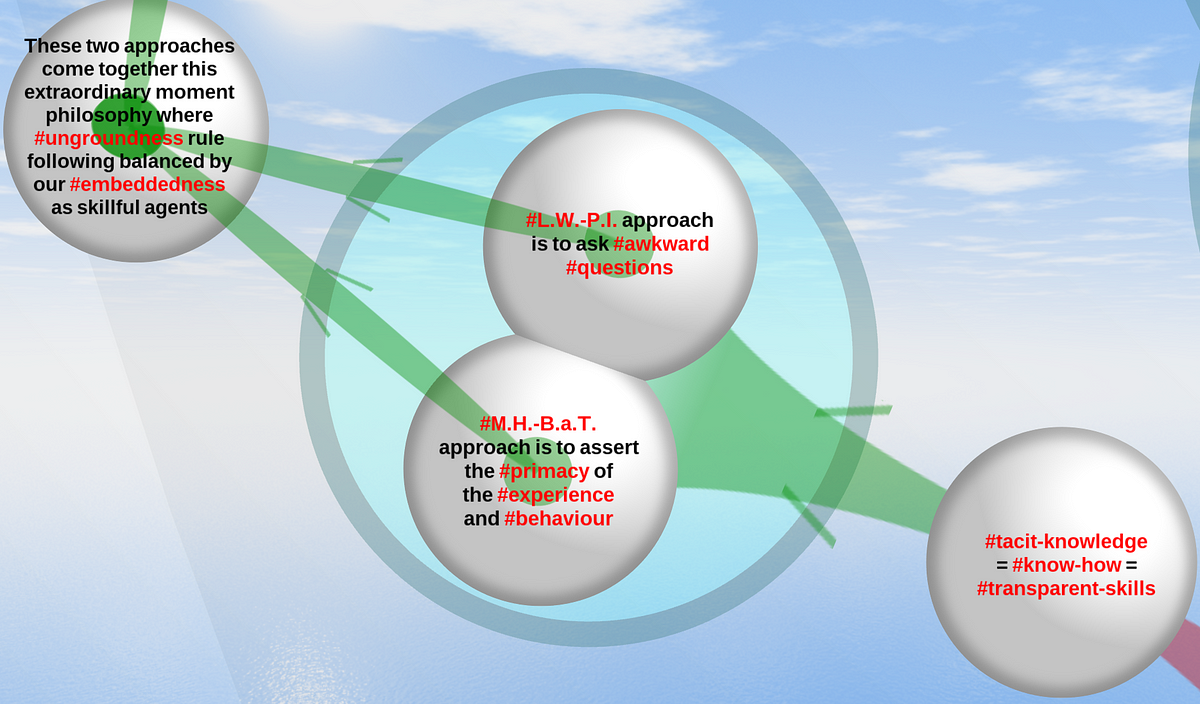
How does understanding ourselves as skilful agents (always already embedded in the world and already taking action in the world) defeat Epistemological Skepticism and Anti-realism ?
Epistemological Skepticism asserts that we cannot have “knowledge of the external world” which lies outside our minds/brains/souls/whatever . The only thing we can genuinely know is the truth of our own knowing subject.
But following from Wittgenstein’s awkward questions and Heidegger’s assertions, we see that our experience and behaviour does not suggest that we are primarily knowing subjects over and against an external world of objects in the first place … rather it implies that we are primarily embedded skilful agents who use transparent tools by means of transparent skills.
[We arise in the world prior to becoming a subject. Whatever it is that a subject is, it arises secondarily to the primacy of our having first arisen in the world we all share. This primacy of world over subject is both in terms of time but also in respect of how it makes sense to understand ourselves. We are always already in the world first, and subjects second.]
It is only by virtue of these transparent skills and tools that we have any knowledge of our physiology and neurology in the first place.
It is on the basis of this set of tools and skills that we are transparently able to build up our explicit know-that by building on the foundation of our implicit know-how which itself is a consequence of the continuous feedback the world constantly gives us in response to our actions.
Anti-realism asserts that we have no “direct contact with reality”. All our supposed experience of reality is actually just experience of sense data, such as impulses propagated by our optic nerves.
But again, once we understand ourselves as embedded skilful agents who use transparent tools by means of transparent skills, then we cannot in the first place find a gap between ourselves and reality that needs to be bridged.
The world that we primarily find ourselves in, is one in which we are always already completely immersed and already taking action. This is the world that we find ourselves already in when we first find ourselves at all, and find ourselves anywhere. We don’t have to break into this world; much rather we have very few means of escaping from it.
This is the world that we always find ourselves already in — the place we start from prior to any understanding of it.
Consequently there is in fact no need to try to break out of the “cave” of our minds, and into the light of an “external world”. We are always already in the only world we have — the one world we all share and live in together.
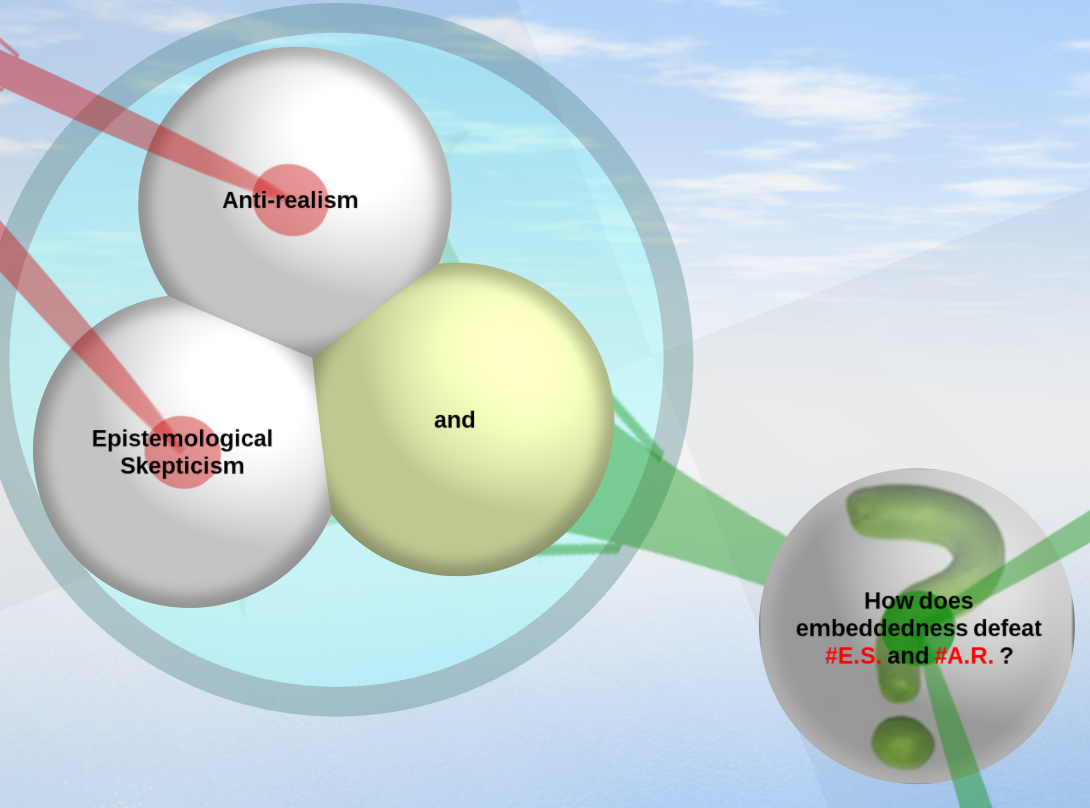
Summary
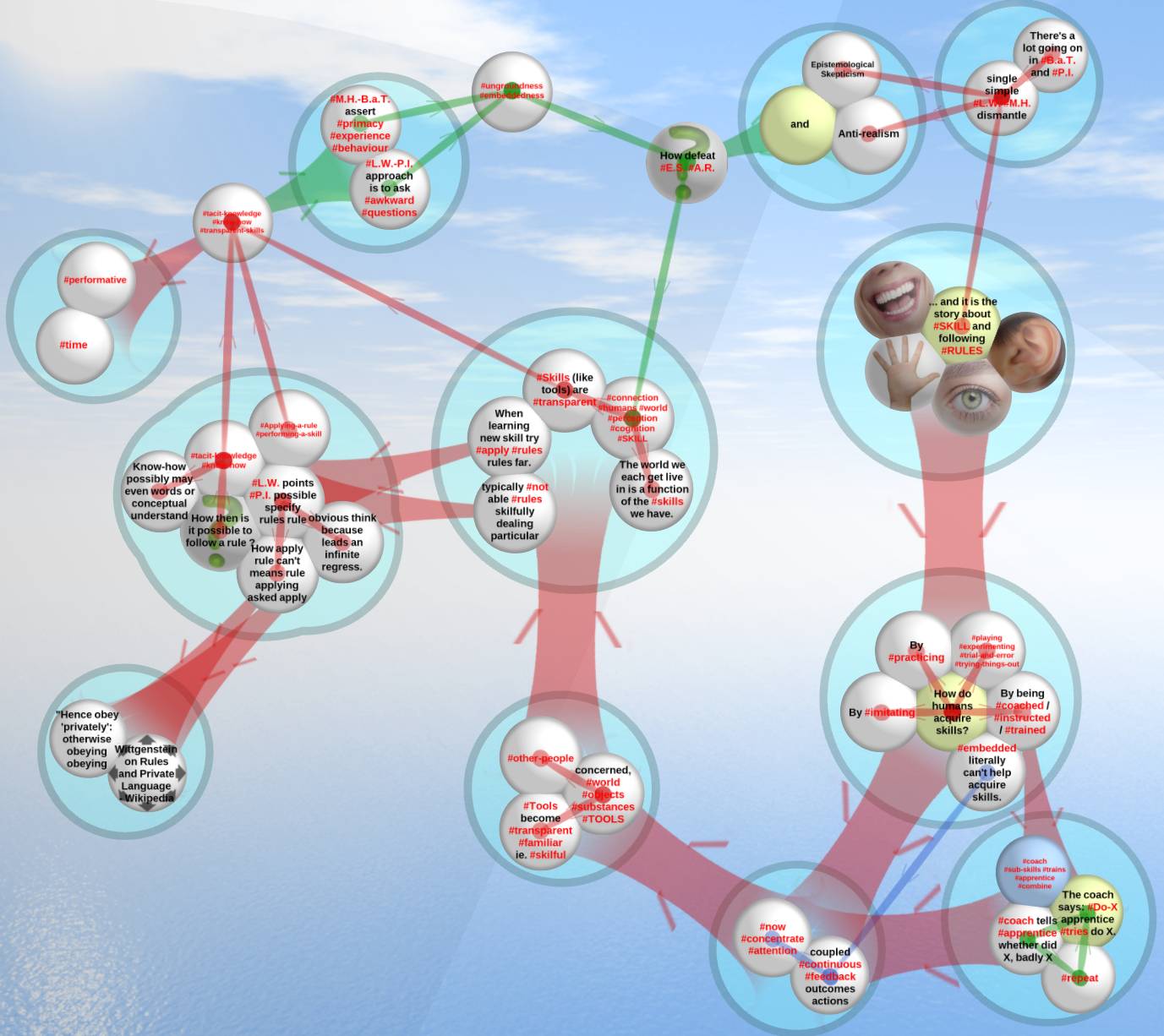
2 comments
Comments sorted by top scores.
comment by Viliam · 2019-04-05T21:38:36.817Z · LW(p) · GW(p)
The pictures are so confusing! Without them, the article would be half as long, and easier to read.
It took me some time to make a guess about what you were trying to say. Here is my guess:
We get skills by doing things, and getting natural feedback on them. The learning is more precise if we learn sub-skills separately; this is how good coaches do it. Well-mastered skills become unconscious. This kind of knowledge is often difficult to describe verbally. Wittgenstein is awkward. The fact that we have skills we can't verbally explain is an argument for the existence of reality (I guess if everything would be "maps" and "social consensus", we would be able to explain everything verbally). This is a historically important philosophical insight.
Somehow I am neither impressed, nor do I feel that reading and analyzing this article was a meaningful way of spending time. (I tried to be nice and give you feedback beyond "philosophy is unwelcome at LW". My alternative hypothesis is "texts that are difficult to read, and contain little information, which itself is kinda dubious, are unwelcome at LW".)
My objections:
- the fact that "I can't explain something verbally" is a fact about me, not about the thing being indescribable in principle; maybe it actually is maps and social rules all the way down, and one of the rules is that you are forbidden to describe some parts verbally. (No, this is not my actual opinion, just a counter-argument.)
- Wittgenstein's argument about infinite regress of rules for applying rules, and the actual mechanism how humans learn tacit skills, may seem similar but happen on different levels. (It's like using unpredictability of quantum physics to explain why you can't predict a coin flip.)
↑ comment by Andrew Bindon (andrew-bindon) · 2019-04-06T02:02:47.655Z · LW(p) · GW(p)
Thanks for feedback.